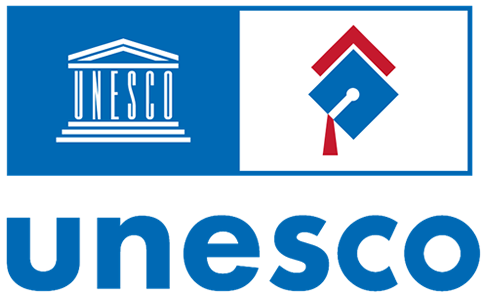Citizen competencies and quality education for 2050 at the Universidad Laica Eloy Alfaro de Manabí
Abstract
Citizen competencies influence the long-term quality of higher education service at the headquarters of the Universidad Laica Eloy Alfaro de Manabí in the Manta canton, Ecuador. The objective of the research was to contrast the training processes in citizen competencies that will influence the achievement of quality education for 2050. The quantitative approach and descriptive research were used, together with the bibliographic review and statistical analysis. The inductive method was used with the application of the survey technique and through a virtual form in students of the Faculty of Social Sciences, Law and Well-being. The results show that there are greater difficulties in the areas of coexistence and peaceful relations and plurality, identity and valuation of differences. A proposal for training in citizen competencies for quality education by 2050 was outlined based on the axes of adaptability, microcredentials, self-learning, community linkage and teacher training. Finally, it was concluded that the main institutional challenge will be to promote tolerance in the university community and guarantee an inclusive and equitable quality education.
References
Álvarez-Pérez, P., & López-Aguilar, D. (2020). Competencias de adaptabilidad y factores de éxito académico del alumnado universitario. Revista iberoamericana de educación superior, 11(32), 46-66. https://doi.org/10.22201/iisue.20072872e.2020.32.815
Asamblea Nacional. (2018). Ley Orgánica de Educación Superior. Art. 8. Registro Oficial Suplemento 298. Ecuador. https://www.ces.gob.ec/documentos/Normativa/LOES.pdf
Cabanes, I., Soto, G., & Sánchez Soto, L. (2018). Formación de competencias ciudadanas en estudiantes universitarios: aproximación teórica para implementar en la praxis pedagógica . Espíritu Emprendedor TES , 2(3), 63-82. https://doi.org/10.33970/eetes.v2.n3.2018.102
Cabrera-Jiménez, M. (2020). Relevancia de las competencias ciudadanas en construcción de civilidad en educación superior . Educación Y Humanismo, 22(38). https://doi.org/10.17081/eduhum.22.38.3555
Carriazo Díaz, C., Pérez Reyes, M., & Gaviria Bustamante, K. (2020). Planificación educativa como herramienta fundamental para una educación con calidad. Utopía y Praxis Latinoamericana, 25(5), 87-95. https://www.redalyc.org/journal/279/27963600007/27963600007.pdf
Cedillo, S., & Rivadeneira, E. (2020). Participación ciudadana en la gestión de las políticas educativas. Conrado, 16(72), 210-216. http://scielo.sld.cu/pdf/rc/v16n72/1990-8644-rc-16-72-210.pdf
Clavijo, R., & Bautista-Cerro, M. (2020). ALTERIDAD. Revista de Educación. La educación inclusiva. Análisis y reflexiones en la educación superior ecuatoriana, 15(1), 113-124. https://doi.org/10.17163/alt.v15n1.2020.09
Clavijo-Cáceres, D., & Balaguera-Rodríguez, A. (2020). La calidad y la docencia universitaria: algunos criterios para su valoración. Revista De Investigación, Desarrollo E Innovación, 11(1), 127-139. https://doi.org/10.19053/20278306.v11.n1.2020.11688
Fernández-Martínez, L., Ramírez-Rodríguez, S., Tito-Duran, A., & Milán-Palmer, M. (2019). Las guías de autoaprendizaje en el proceso formativo de los estudiantes universitarios: Retos y estrategias. Maestro Y Sociedad, 16(2), 400-411. https://maestroysociedad.uo.edu.cu/index.php/MyS/article/view/4939
Jara, C., Sánchez, M., & Cox, C. (2019). Liderazgo educativo y formación ciudadana: visiones y prácticas de los actores. Calidad en la educación(51), 350-381. https://doi.org/10.31619/caledu.n51.687
Maya, E., & Aldana, J. (2019). Liderazgo Directivo y Educación de Calidad . CIENCIAMATRIA, 5(9), 114-129. https://doi.org/10.35381/cm.v5i9.102
MINEDUC. (2016). Currículo de los Niveles de Educación Obligatoria. Quito. https://educacion.gob.ec/wp-content/uploads/downloads/2016/03/Curriculo1.pdf
Montenegro, J. (2020). La calidad en la docencia universitaria. Una aproximación desde la percepción de los estudiantes. Educación, 29(56). https://doi.org/10.18800/educacion.202001.006
Monterrosa, N. (2020). Competencias ciudadanas: Ejes presentes en el sector estudiantil Colombiano. Telos: Revista de Estudios Interdisciplinarios en Ciencias Sociales, 22(2), 376-386. https://doi.org/10.36390/telos222.09
Pedraja-Rejas, L., Marchioni-Choque, I., Espinoza-Marchant, C., & Muñoz-Fritis, C. (2020). Liderazgo y cultura organizacional como factores de influencia en la calidad universitaria: un análisis conceptual. Formación universitaria, 13(5), 3-14. https://doi.org/10.4067/S0718-50062020000500003
Rodríguez, A., Ruíz, S., & Guerra, Y. (2007). Competencias ciudadanas aplicadas a la educación en Colombia. Revista Educación Y Desarrollo Social, 1(2), 140-157. https://doi.org/10.18359/reds.700
Ruiz, A., & Chaux, E. (2005). La Formación de Competencias Ciudadanas. Bogotá: Ascofade. https://bit.ly/3V45zx4
Surdez Pérez, E., Sandoval-Caraveo, M., & Lamoyi Bocanegra, C. (2018). Satisfacción estudiantil en la valoración de la calidad educativa universitaria. Educación y educadores, 21(1), 9-26. https://doi.org/10.5294/edu.2018.21.1.1
ULEAM. (01 de diciembre de 2022). Portal Institucional de la Universidad Laica Eloy Alfaro de Manabí. Misión y Visión ULEAM: https://www.uleam.edu.ec/mision-y-vision-uleam/
Zambrano, E. (2018). Prácticas pedagógicas para el desarrollo de competencias ciudadanas. Revista Electrónica de Investigación Educativa, 20(1), 69-82. https://doi.org/10.24320/redie.2018.20.1.1409
Copyright (c) 2023 Patricio Giler-Medina, Jipson Bravo-Cedeño

This work is licensed under a Creative Commons Attribution-NonCommercial 4.0 International License.
Copyright notice
Copyright allows the protection of original material, and curbs the use of others' work without permission. UNESCO IESALC adheres to Creative Commons licenses in the open access publication of ESS. Specifically, texts published in this journal are subject to a Creative Commons Attribution-NonCommercial 4.0 International (CC BY-NC 4.0) license: ESS is an open access journal, which means that all content is freely available to the user or their institution. Users may read, download, copy, distribute, print, search or link to the full text of the articles, or use them for any other lawful purpose, without asking prior permission from the publisher or the author, always making sure to cite the author. Commercial use is not permitted. ESS requires authors to accept the Copyright Notice as part of the submission process. Authors retain all rights.
The full license can be found at https://creativecommons.org/licenses/by-nc/4.0/
 Attribution - NonCommercial (CC BY-NC 4.0)
Attribution - NonCommercial (CC BY-NC 4.0)
This journal does not charge authors for the submission or processing of articles. The authors of the contributions will receive acknowledgment of receipt that the work has reached the Editorial Team of the Journal.




.png)
